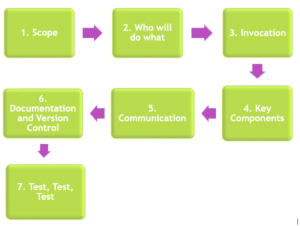“We’ll be alright. This sort of thing always happens to other companies doesn’t it?” Well maybe, but do you want to take the risk? Not really a recipe for sleeping well at night. Give your stakeholders total peace of mind and confidence in your business by building the highest level of resilience into everything you do
 |
 |
| The Benefits of Business Resilience? |
Why Does Business Resilience Matter to Me ? |
- Your clients will have the peace of mind that you are able to survive an incident
- Stakeholders are satisfied that their data is safe
- Full alignment with your business strategy so it’s seamless to build
- Investment proportionate to the asset value at risk
- Full internal responsibility where staff know exactly what they have to do
- Formalises existing policies and procedures (those which are robust and proven) which can improve productivity
- Enhanced reputation and improves business status
|
- Increasingly, your clients are asking for proof that you have appropriate measures in place
- Insurance companies are no longer satisfied with a thrown together “tick box” plan (particularly for Cyber Insurance)
- By undertaking a plan in Business Continuity, opportunities for improvement will present themselves
- A more comprehensive Risk Assessment approach not just for Systems but for people, buildings and the external environment etc. This will ensure your business is protected against many kinds of threats
- You could get left behind when being selected as an approved supplier if your resilience is too low
|
Typical stages of a Business Resilience Continuity Plan include:

To view this in detail, please download our free Business Continuity Data Sheet.
Find out more about our compliance solutions here.
Get in Touch for your
Free consultation


 Twin Systems
Twin Systems








